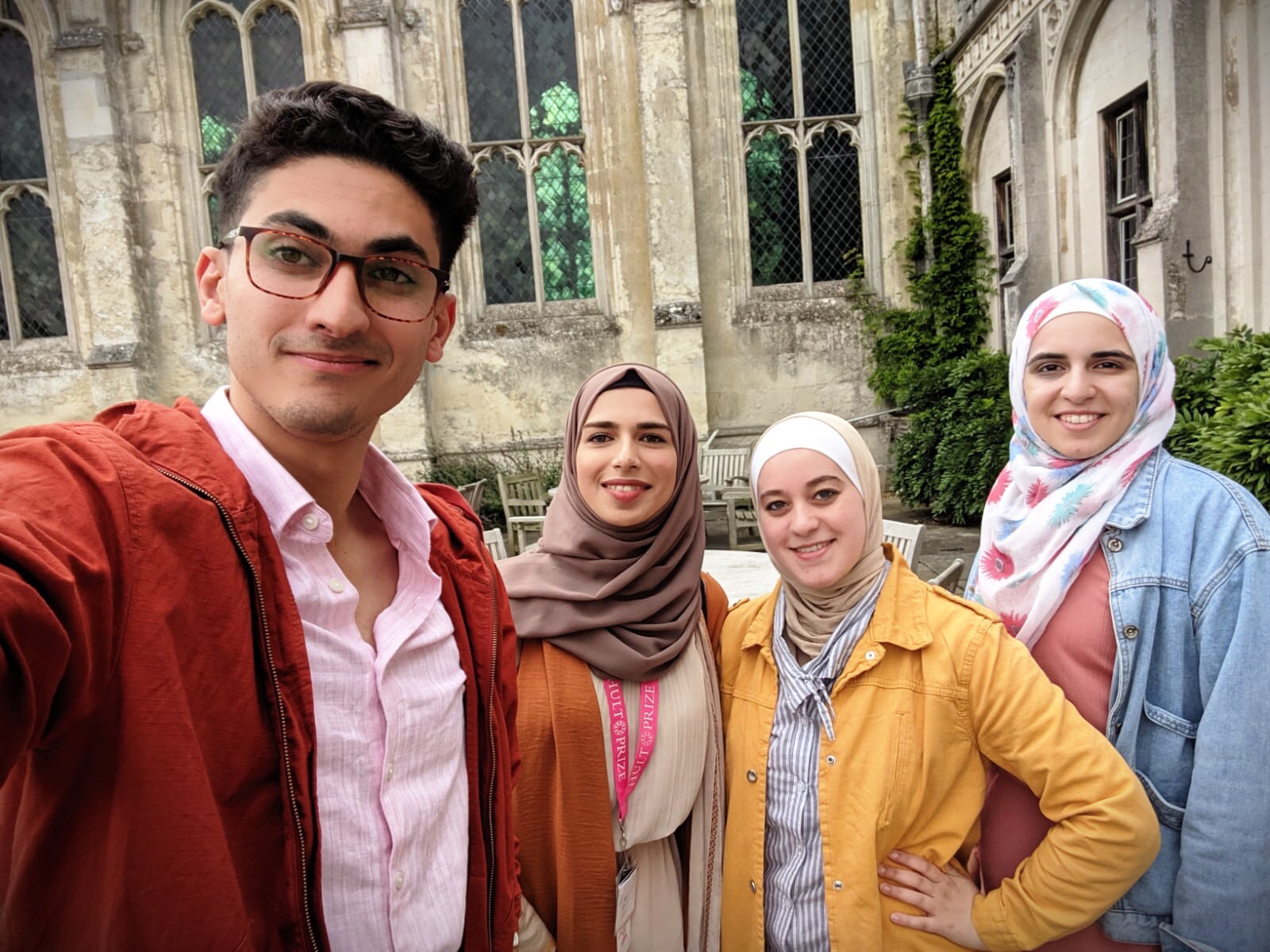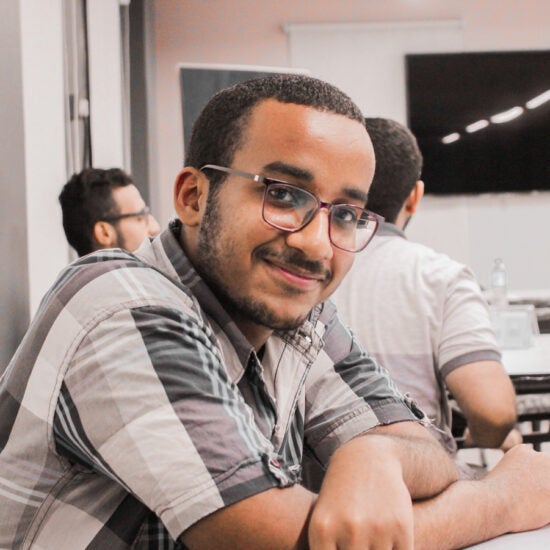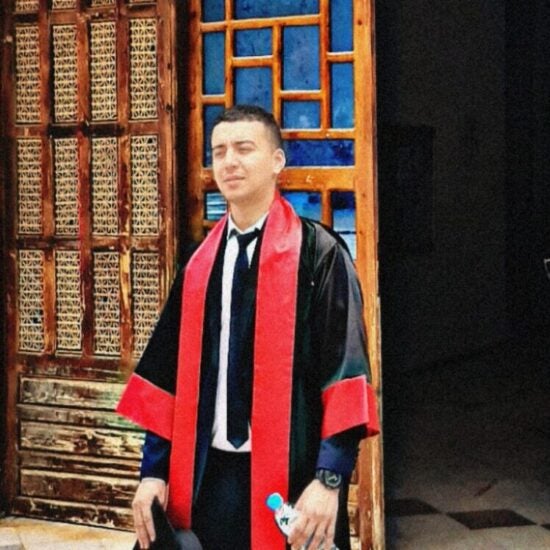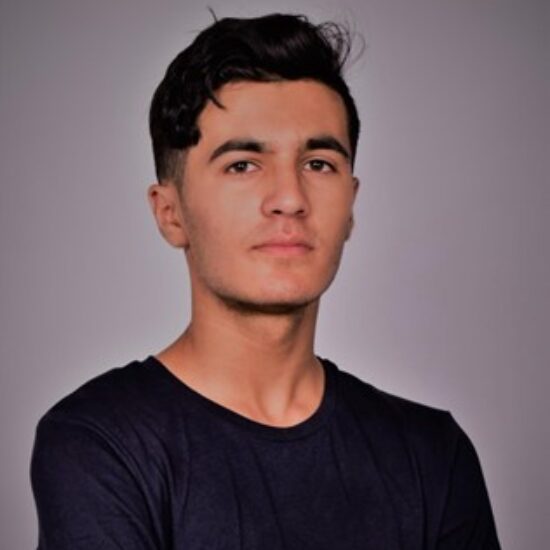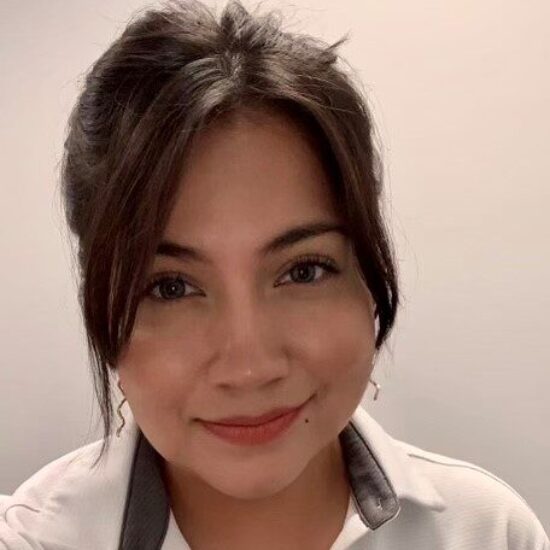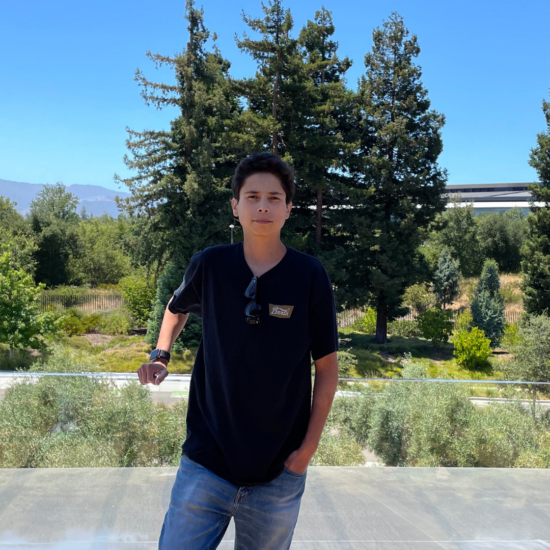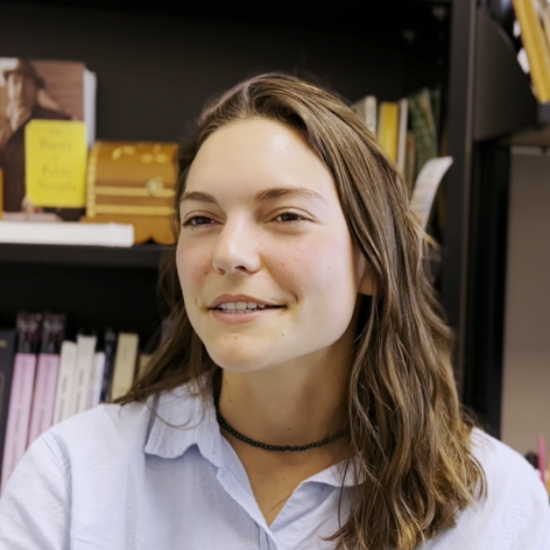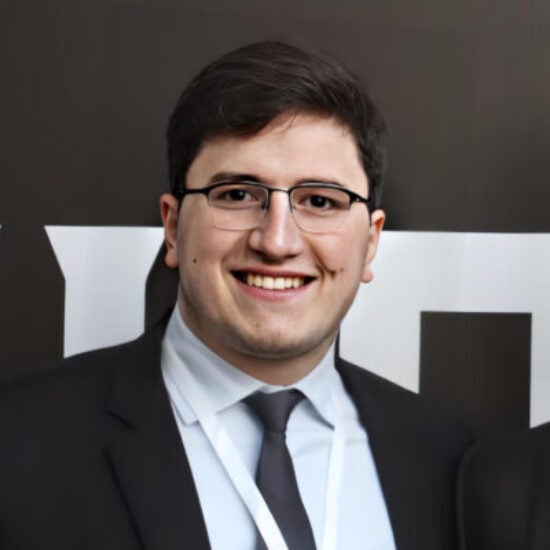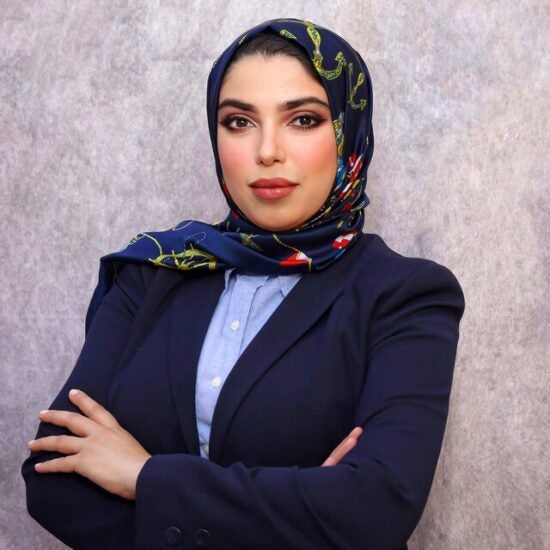Ola (center right) and her team.
Ola Bara, 23, was recently selected as a member of one of 40 teams to participate in an international accelerator in London for the Hult Prize, a prestigious international youth competition of humanitarian innovation. Ola credits her success in this competition to her experience during the Green Futures Exchange, which she participated in last year. This virtual exchange program, sponsored by the Stevens Initiative, connected 170 participants from An-Najah National University in Nablus, Palestinian Territories, and Arizona State University in Tempe, Arizona to learn about sustainable architecture models and green buildings. Working in virtual international teams, students developed projects and participated in a green buildings design competition. Ola’s team, including her classmate Narmeen Shayeb and their teammate from ASU, developed an innovative green building design for a community center in Balata Refugee Camp and ranked second of over 22 bi-national teams.
Ola credits her experiences in the Green Futures Exchange as a driving force behind both her confidence to apply to and her current success in the Hult Prize. Ola’s Hult Prize project included her fellow Green Futures alumni Rosul Hussein, Walaa Kurd, and Souzane Rawajba. Before participating in the virtual Green Futures Exchange, Ola had little experience interacting with peers from outside of her country, let alone communicating regularly over an entire semester. Her experience with her American team member made her more confident when communicating with people from different cultures as well as her ability to express herself well in English. After working with someone from the United States, Ola said that, “cultural differences are not as much of a barrier as I initially thought and difference can actually be an asset when working on a project.” Ola also says her intensive green buildings trainings and research during her virtual exchange course as the foundation for her project that she and her team went on to develop for the Hult Prize. “If I had not been challenged to complete such a rigorous project of gathering research and working on a new building model focused on sustainability and innovation, I would not have been aware of the many innovations in green buildings and how I can apply them to similar humanitarian efforts.”
